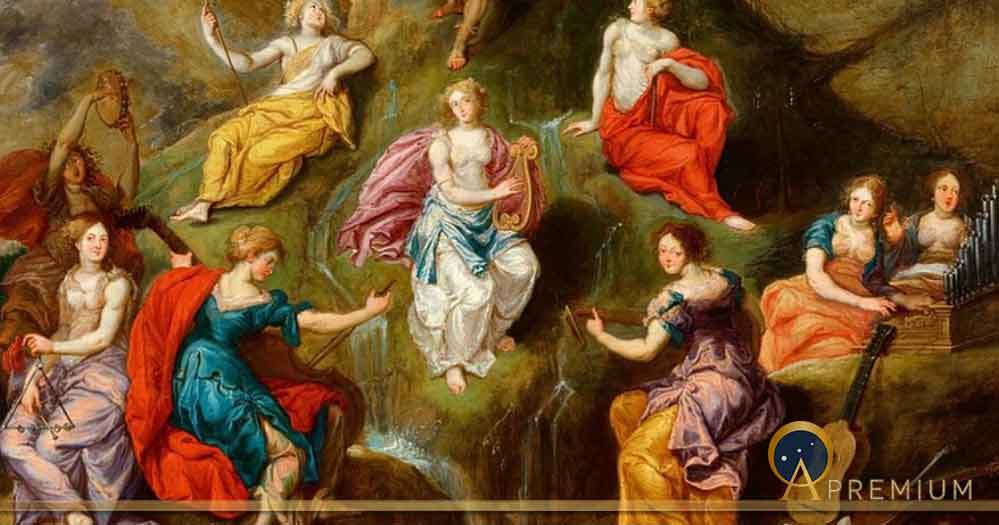Sing O Goddess, Timeless Inspiration Of The Muses
Once upon a time, Zeus spent nine consecutive nights sleeping with Mnemosyne, the Titan goddess of memory. These passionate nights gave birth to the nine Muses. The Muses are Erato, Euterpe, Melpomene, Polyhymnia, Terpsichore, Thalia, Urania, Calliope, and Clio. Many centuries later, the Muses were honored in the writings of poets, authors, and painters such as Shakespeare, Milton, Dante and Rossetti. In the opening line of his Henry V, Shakespeare refers to the “Muse of fire”, and Milton beseeches the “Heav’nly Muse” to sing at the beginning of his Paradise Lost. By invoking a muse at the opening of their works, Shakespeare and Milton carried on a centuries-old custom. Written thousands of years before their time, the epic poem Iliad already opens with one of the most well-known muse invocations. When Homer says, “ Sing, O goddess, the anger of Achilles son of Peleus, that brought countless ills upon the Achaeans” in book I of the Iliad, he is likely calling to the muse, Calliope, the muse of epic poetry.

Apollo and the Muses by Baldassarre Peruzzi (1514) (Public Domain)
The Muses lived on the top of Mount Olympus, where they spent their days entertaining their father Zeus and the other Olympian deities. At the conclusion of the first book of the Iliad, Homer describes a rather magnificent set piece of the gods on Olympus in which the Muses respond to each other's songs while Apollo plays his lyre as they are entertaining the gods during their feast. Apollo also dances on Mount Olympus while the Muses sing in the Homeric Hymn to Apollo. In Homer’s stories, the Muses and Apollo seem to always perform together except for Achilles’ funeral in which the Muses appear alone. Apollo's presence would have been considered to be impolite as he was the cause of Achilles' demise.
Later customs claimed that the Muses lived at the top of Mount Helicon in Boeotia, the site of a significant goddess cult. In his Theogony, Hesiod claimed to have had a conversation with the Muses at this site, during which they bestowed upon him their divine voice accompanied by a lush branch of laurel, giving him their blessings to enable him to exalt the gods and their progeny. Thus, Hesiod the unassuming shepherd became one of the greatest poets in history.
Like this Preview and want to read on? You can! JOIN US THERE ( with easy, instant access ) and see what you’re missing!! All Premium articles are available in full, with immediate access.
For the price of a cup of coffee, you get this and all the other great benefits at Ancient Origins Premium. And - each time you support AO Premium, you support independent thought and writing.
Martini Fisher is an Ancient Historian and author of many books, including "Time Maps: Gods, Kings and Prophets" / Check out MartiniFisher.com
Top Image: Apollo and the Nine Muses by Simon de Vos (1630) (Public Domain)
By: Martini Fisher

















